Top 10 Startups of the Month: August 2025 Edition

The most promising ventures are redefining industries in the UK and across the globe.
This month we went looking for proof, not pitch decks — and found it.
Healthcare that arrives early (a capsule test and carers at the door). AI that handles regulated work without fuss. Fibre rolled through muddy fields. Energy that scales: fusion funded at serious scale, a microreactor for data centres, a hob with its own battery. And the web made usable: agents that do the dull jobs, pipelines that turn chaos into clean data.
The common thread is infrastructure — care, power, connectivity, data — the stuff you only notice when it fails. These teams have pilots, customers and momentum. Not perfect. Useful.
One of them will be our Startup of the Year. All of them earned their place.
Top 5 UK Startups
1. Cyted Health (UK)

When Early Detection Stops Being a Luxury
Most revolutions in medicine arrive quietly — not with a Nobel Prize speech, but with a patient walking out of hospital sooner than expected.
Cyted Health is built for those moments. Their focus is on the silent killer: oesophageal cancer. By the time symptoms appear, survival odds collapse. What if we could find it earlier, almost casually, like checking your email?
Cyted’s answer is EndoSign — a swallowable capsule on a string, collecting cells as it passes down the oesophagus. Five minutes, no sedation, no hospital bed.
The company’s AI then analyses the sample for pre-cancerous changes. It sounds almost too simple, yet it has already been used in 35,000 patient cases across the NHS. In August, Cyted secured a $44 million funding round to expand trials in the US and Europe.
This isn’t hype. It’s survival curves moving in real time. While big pharma promises cures, Cyted has quietly built a system that reduces suffering by catching disease before it strikes. It’s not the kind of innovation that makes headlines in Silicon Valley — but it will make funerals less frequent in Newcastle, Norwich, and Nebraska alike.
"Innovation isn’t always about adding years to life. Sometimes, it’s about adding life to the years you still have."
2. Gradient Labs (London)
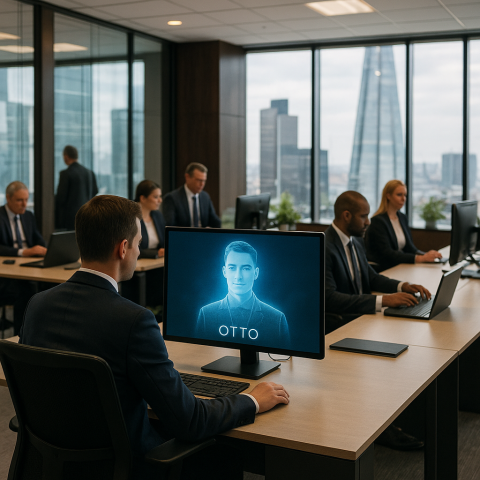
An AI Agent That Knows the Rules
Most startups love to brag about how disruptive they are. Gradient Labs chose the harder path — building something regulators won’t just tolerate, but actually trust.
Their flagship product, Otto, is an AI agent designed for financial services and other heavily policed industries. Where others pitch speed, they emphasise safety. Where others say “move fast and break things,” Gradient quietly replies: “Not if compliance is watching.”
In July, they raised over €11 million in Series A funding, led by top European investors, to scale Otto across banks, insurers, and healthcare providers.
The timing is precise: enterprises are drowning in repetitive workflows but terrified of cutting corners. Gradient’s pitch isn’t “replace the human.” It’s “help the human get home before midnight.”
What sets them apart is humility. Otto doesn’t promise to solve every problem; it takes one painful, bureaucratic process at a time and makes it tolerable. Their clients include firms that wouldn’t normally touch AI with a ten-foot pole — and yet, here they are, running live pilots.
If most AI companies act like rock bands chasing the spotlight, Gradient is more like a chamber orchestra: precise, disciplined, playing to a higher standard.
"Trust isn’t a buzzword. It’s the only currency that keeps the lights on."
3. GoFibre (Edinburgh)
Bringing Light to the Last Mile
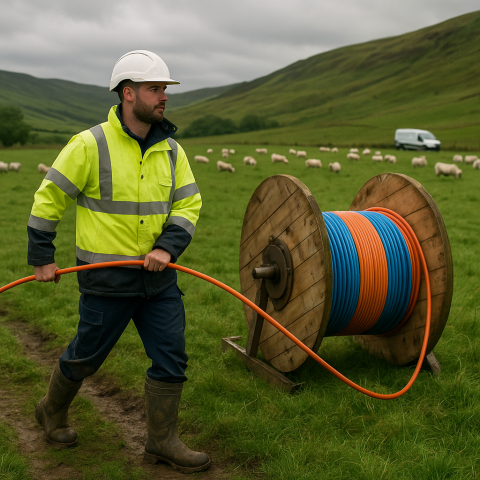
Britain loves to call itself a tech nation. AI conferences in London, endless chatter about unicorns. And yet, twenty minutes outside Edinburgh, I met a man who still climbs a hill to send an email because his Wi-Fi dies if it rains. That’s not innovation. That’s parody.
GoFibre is trying to fix the punchline. They’ve just secured £125 million to roll out full-fibre broadband across rural Scotland and the Borders.
That means 130,000 homes and businesses that have lived with buffering screens and dropped calls might finally get the bandwidth city folk take for granted.
This isn’t glamorous work. No TED Talks.
No glossy launch parties. It’s mud, trenches, engineers swearing at the weather while they drag fibre through fields where sheep still wander. Infrastructure at its rawest.
But if it works, kids in the Highlands won’t have to do homework on 3G. Doctors won’t have to drive thirty miles just to upload scans. And yes — maybe even that farmer will watch Netflix without a hill climb.
Progress doesn’t always arrive with a keynote. Sometimes it arrives on a reel of cable, in the back of a van that smells faintly of diesel.
"Britain doesn’t need another app. It needs a connection that doesn’t collapse when the rain does."
4. Xapien (London)

Due Diligence Without the Dullness
There’s a dirty secret in finance and law: due diligence is mind-numbing. Hours of scrolling through registries, news clippings, court filings. It’s the part of the job everyone dreads — and yet, it’s the one thing you can’t afford to get wrong.
Xapien looked at that mountain of paperwork and decided to cheat. Not by skipping steps — but by letting AI do the grunt work. Their system scans the noise, pulls the threads together, and spits out an investigation that actually makes sense.
Faster than a junior analyst, and — whisper it — often sharper.
They pulled in £8 million in Series A funding last year, but the traction has carried them into 2025 with banks, law firms, even governments using their platform.
Not because it’s “the future of AI,” but because partners are sick of wasting weekends trawling Google in incognito mode.
Of course, the suits will never admit it. They’ll call it efficiency, risk management, “strategic tooling.” But ask the associate who gets to go home before midnight, and you’ll hear the truth: relief.
Sometimes innovation isn’t about flashy robots or billion-dollar dreams. Sometimes it’s just a smarter way of reading the fine print.
"You don’t notice Xapien when it works. You only notice when your inbox isn’t drowning."
5. Cera Care (UK-wide)
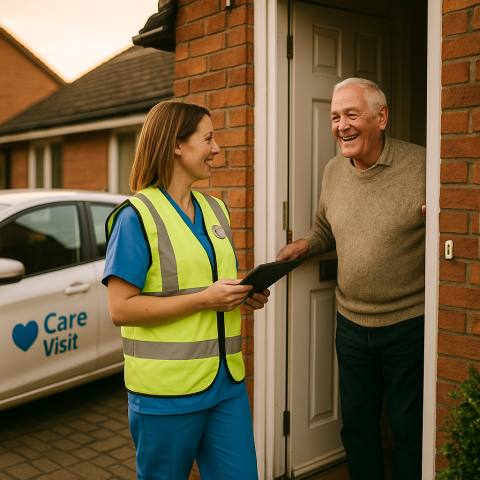
Healthcare That Knocks on Your Door
Hospitals are full, GP surgeries are drowning, and the NHS feels like it’s one flu season away from collapse. Into that chaos walks Cera Care — not with slogans, but with nurses and carers armed with an app that actually works.
Their model is simple, almost old-fashioned: bring healthcare to the home. But under the hood, it’s data-driven. AI routes carers, predicts who’s at risk, and flags problems before they spiral into 999 calls.
The numbers are stark: 2 million visits a month, 70% fewer hospitalisations, 20% fewer falls. That’s not PR spin — that’s thousands of people who stayed upright, stayed safe, stayed home.
In January they raised $150 million, pushing Cera’s valuation into unicorn territory. But it doesn’t feel like a unicorn. No glossy Silicon Valley campus, no hype decks. Just care workers criss-crossing Britain in hatchbacks, checking in on neighbours who’d otherwise be forgotten.
Critics will say it’s just logistics in a nice coat. Maybe. But logistics save lives when hospitals can’t. And if Britain is going to age with any dignity, it won’t be because of miracle drugs. It will be because someone showed up at the right door, at the right time.
"Sometimes innovation isn’t a gadget. It’s a knock that comes before the fall."
Top 5 Global Startups
6. Commonwealth Fusion Systems (USA)
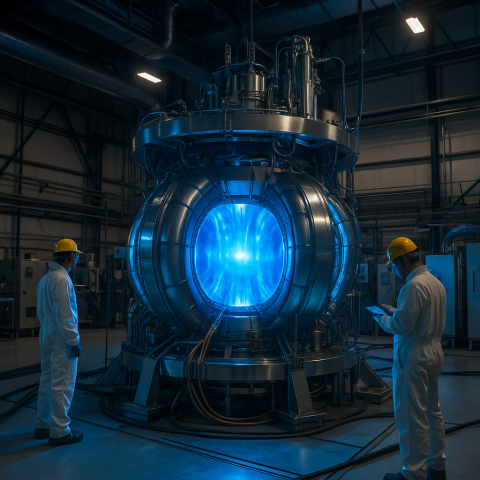
Chasing the Star in a Bottle
Every generation swears it will crack fusion. And every generation, so far, has failed. Deadlines slip, promises fade, and the dream of limitless clean energy stays stuck in sci-fi. Until now, maybe.
In August, Commonwealth Fusion Systems pulled in an eye-watering $863 million in Series B2 funding. Backers? Everyone from Nvidia to Bill Gates.
Not for blueprints, but for hardware — their SPARC reactor, a compact tokamak designed to run not in theory but in practice. By the 2030s, they claim, this thing won’t just light up lab benches. It will power cities.
I’ve been around long enough to treat fusion announcements with the same suspicion as budget speeches — lots of noise, little delivery. But CFS has already built magnets strong enough to bend the narrative.
They’re not pitching miracles. They’re engineering them, one superconductor coil at a time.
It’s easy to scoff, to say fusion is always “ten years away.” But when a startup raises nearly a billion dollars and gets Silicon Valley to bet on plasma physics, you start paying attention. Because if they’re right, we won’t just rewrite energy markets. We’ll rewrite geopolitics.
"People say fusion is impossible. Funny — so was flying, until someone left the ground."
7. Copper (USA)
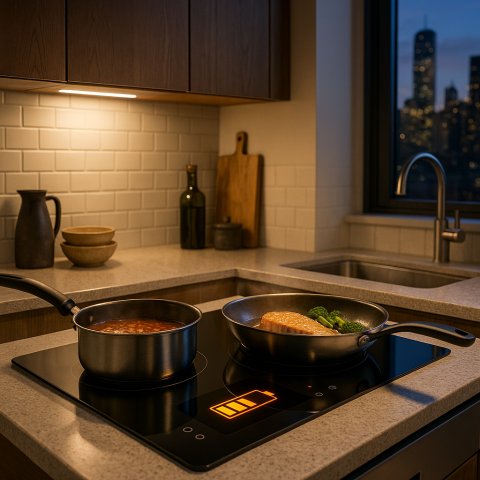
A Stove With a Battery, Not a Catch
There’s something almost absurd about the energy transition. We talk about gigafactories and smart grids — meanwhile, in New York, people still cook on gas stoves older than their landlords.
Enter Copper, a startup from Berkeley that doesn’t want you to wait for the grid to get clever. They just gave you a shortcut.
Their idea is disarmingly simple: an induction stove with a built-in battery. Plug it into any socket. No rewiring, no fancy electrician visits, no endless excuses from landlords. Suddenly, cooking is cleaner, safer, and — crucially — accessible.
In August, Copper raised $28 million in Series A to scale production, with pilot programs already running in New York Housing Authority apartments. Think about that: the same tenants who usually wait decades for infrastructure upgrades can now leapfrog straight into the future with a box that fits in their kitchen.
It’s not flashy tech. No glowing blueprints. Just a stove that works when the power grid falters — and can even store energy to help stabilise it. A tiny battery in your flat, multiplied by millions, becomes a distributed power plant no one saw coming.
Copper isn’t trying to change how you live. They’re trying to change what you take for granted. And that may be even harder.
"The energy revolution won’t arrive with fanfare. It’ll start when your dinner cooks without gas."
8. TinyFish (USA)
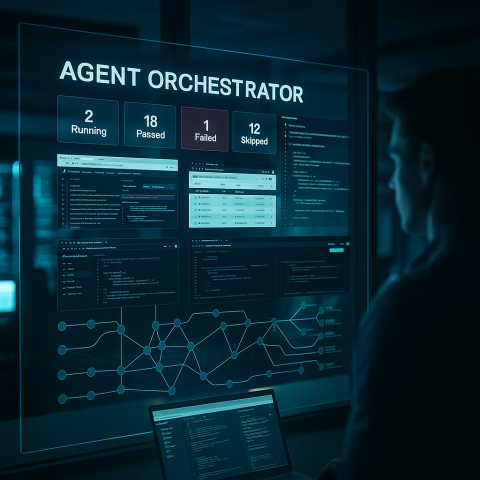
Teaching the Web to Work for You
The internet is infinite. Which is another way of saying: impossible. Nobody can keep track of the noise, the shifting prices, the changing rules. Most of us gave up trying years ago. TinyFish didn’t.
This San Francisco startup builds AI agents that don’t just scrape the web — they actually do the legwork you’d normally throw at interns. Price monitoring. Compliance checks. Tracking obscure product shifts across thousands of sites. Not glamorous, but vital for companies that live and die by data.
In August, they raised $47 million in Series A, with ICONIQ leading the round. Not for a proof of concept — the system is already deployed at Fortune 500 firms. One exec I spoke to compared it to “hiring a hundred analysts who never sleep, never whine, and never hand in their notice.”
TinyFish doesn’t market itself as world-changing. They don’t need to. Their clients already know what a relief it is to stop drowning in digital minutiae. And here’s the trick: when the web is infinite, the only way to cope is to make something else infinite too.
It’s a strange name, TinyFish. But maybe that’s the point — small, quick, and swimming through currents the rest of us barely see.
"Sometimes scale isn’t about size. It’s about speed — and knowing where to bite."
9. Aalo Atomics (USA)
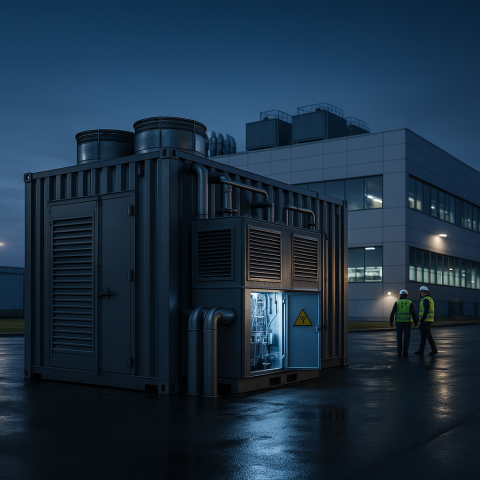
Nuclear, But Make It Small
Nuclear power has always carried the weight of cathedrals — giant towers, concrete fortresses, timelines that stretch across decades. Aalo Atomics is asking a heretical question: what if the future of nuclear looked more like a shipping container than a city?
In August, they raised $100 million in Series B, bringing total funding to $136 million. The goal: build compact, factory-made micro-reactors capable of delivering 50 megawatts of electricity — the perfect size to feed a data centre or a small town.
The prototype is already on the table. Not theory. Steel. Wires. Circuits.
What makes Aalo different isn’t just scale, it’s intent. While governments debate over megaprojects that never seem to leave the drawing board, Aalo is designing reactors like consumer hardware — modular, replicable, pragmatic. The company’s pitch isn’t about saving the planet in 2050. It’s about keeping the lights on for AI clusters in 2026.
Sceptics mutter about safety, regulation, red tape. And yes, those shadows are real. But when cloud demand is growing faster than grids can cope, someone has to think smaller to think bigger.
"The next nuclear revolution won’t look like a skyline. It’ll arrive on the back of a truck."
10. Firecrawl (USA)

Making the Web Legible Again
The internet was supposed to be a library. It became a jungle. Billions of pages, half-dead links, data scattered like leaves in a storm. For AI systems — and for the humans who depend on them — the problem isn’t access. It’s chaos.
Firecrawl thinks the solution isn’t bigger search engines, but smarter machetes. Their “Fire-Engine” doesn’t just crawl web pages, it rips through the noise, extracts structure, and delivers clean, real-time data pipelines to whoever needs them — from Shopify merchants to Zapier integrations to AI agents desperate for live context.
In late August, they pulled in $14.5 million Series A, pushing their total to $16.2 million. The names backing them aren’t small. And the demand is obvious: the web changes by the second, yet most systems treat it as static. Firecrawl’s pitch is simple: stop indexing yesterday. Start living in today.
I’ve seen plenty of crawling startups stumble, drowning in their own feeds. Firecrawl feels different: sharp focus, brutal efficiency, and the honesty to admit that the web isn’t a library anymore — it’s a wildfire.
"You don’t tame the internet. At best, you cut paths through it. Firecrawl just handed out sharper blades."
Cast Your Vote
Which of these startups deserves the August spotlight? Vote for the one you’d actually bet on — not the flashiest, the most convincing.
Vote here
Editor’s Pick
Cyted Health (UK)
Early Detection, Humanely Done
While others promise cures, Cyted brings the timeline forward: a swallowable capsule test analysed by AI, five minutes, no sedation, real-world screening for oesophageal disease. Quiet technology, profound impact — fewer late diagnoses, more ordinary lives kept intact.
“Sometimes the breakthrough isn’t a miracle drug. It’s catching trouble before it thinks it’s arrived.”